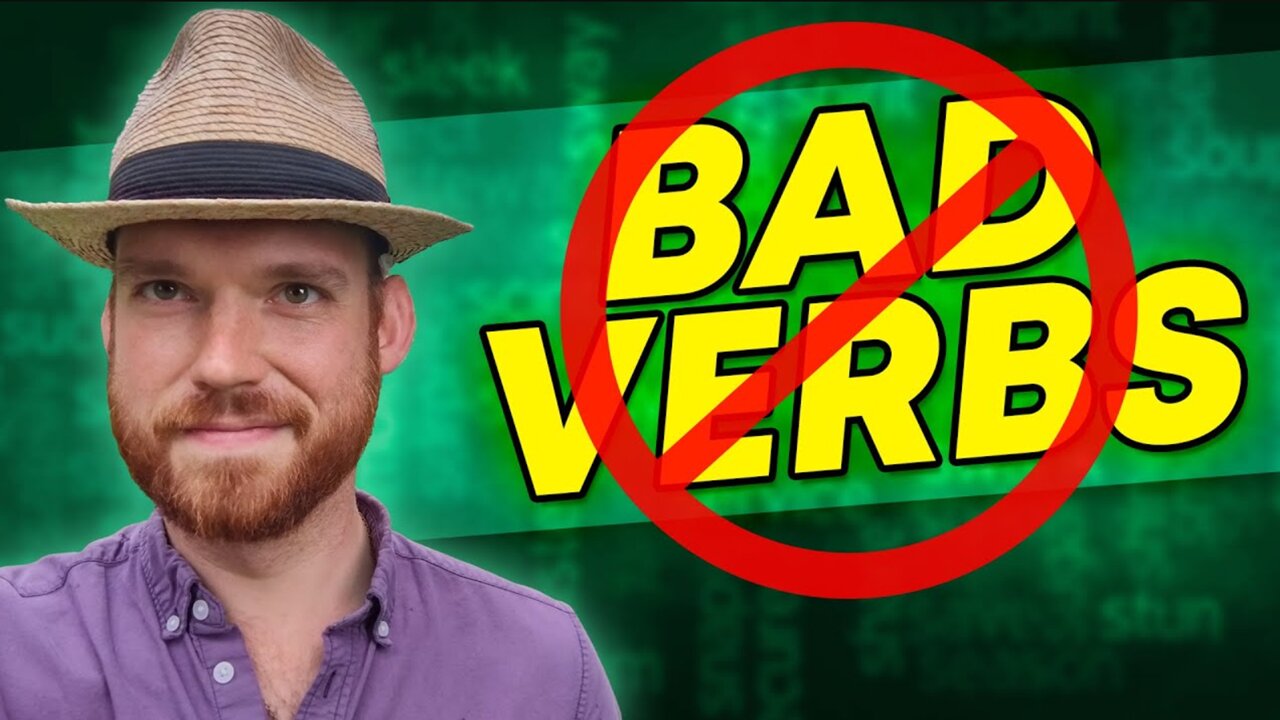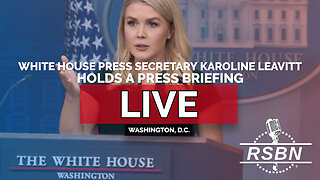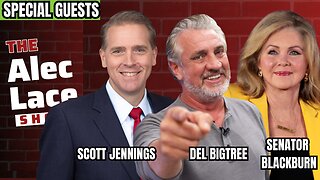Premium Only Content

Adverbs, Manipulation, and a New Mode of Being w/ Celebrity Ghostwriter & Writing Coach Joshua Lisec
👉 Write a useful book that converts readers into high-paying clients. Free training shows you how: https://lisecghostwriting.com/golden/ 📖
Most people never realize how deeply language shapes the way they think, act, and see the world around them. But in “Adverbs, Manipulation, and a New Mode of Being w/ Celebrity Ghostwriter & Writing Coach Joshua Lisec,” a new perspective emerges—one that connects the structure of language with the structure of human freedom itself. In this thought-provoking episode, celebrity ghostwriter and writing coach Joshua Lisec unveils what he calls a “social theory of everything,” a unifying way of understanding how words—particularly adverbs—become tools of manipulation, confusion, and even self-deception.
The discussion begins with a revelation familiar to anyone who has ever felt out of sync with the world: the nagging sense that people often say one thing and mean another. Through this lens, Lisec explores how adverbs—words like actually, basically, literally, and probably—have become linguistic weapons. They distort clarity, inject vagueness, and manipulate perception. This, he argues, is where the theory of everything in communication begins: understanding that even the smallest linguistic choices can alter human consciousness.
In exploring why adverbs are bad, Lisec illustrates how they subtly change meaning and mood. They often appear harmless, but in reality, they mask uncertainty or dishonesty. The overuse of these words in headlines, tweets, and conversations—what he terms badverbs—is not just a grammatical habit but a social phenomenon. Through unnecessary adverbs examples and overuse of adverbs examples, Lisec demonstrates how manipulative language patterns can desensitize people to truth, erode trust, and create emotional instability.
This isn’t merely a grammar lesson. It’s an exploration of the human condition. When someone says, “You don’t really need that,” or “I actually care about you,” there’s a subtle shift in power. Adverbs allow speakers to reframe reality in ways that benefit them. They create what Lisec calls “zero-sum communication”—if one person wins the argument, the other must lose. That’s manipulation in its simplest form. Understanding these types of manipulation is essential to reclaiming clarity in speech and thought.
Lisec ties this back to a broader theory of everything formula—a holistic model of human behavior drawn from philosophy, psychology, and linguistics. He presents seven interrelated aspects of the self: spiritual, emotional, mental, social, behavioral, and physical. In most worldviews, these elements are treated separately, but Lisec’s theory of everything unites them. The common thread? Language. What we say—and how we say it—either integrates these parts or fractures them.
In the episode, Lisec draws from his work as a celebrity ghostwriter, having written more than 70 books across genres from philosophy to business. His experience gives him a unique vantage point on how persuasive writing operates at both personal and societal levels. Whether he’s helping clients write memoirs, manifestos, or marketing books, he’s observed that adverbs often appear when the writer doesn’t fully believe what they’re saying. Removing them forces honesty and precision—a key step toward what Lisec calls a “new mode of being.”
That new mode involves freeing oneself from manipulation—both external and internal. Examples of manipulation abound on social media, where vague, emotional, and manipulative language dominates feeds. Lisec warns that adverbs are the linguistic fuel of misinformation and virtue signaling, reinforcing why social media is fake has become a common refrain. In this sense, language isn’t just about communication—it’s about control.
For those curious about what happens when you ignore a manipulator, Lisec provides an answer rooted in self-awareness. Ignoring manipulation means seeing it first. It means noticing when someone adds an adverb to soften a lie or intensify a false claim. Once a person recognizes these patterns, they begin to operate at a higher level of awareness. The manipulator loses power. The individual gains agency.
This is where persuasive writing becomes a force for good rather than deceit. Lisec, as a seasoned writing coach, teaches that persuasion is the ethical counterpart to manipulation. Persuasion aligns truth with clarity. Manipulation distorts truth for advantage. Knowing what to use instead of adverbs—stronger nouns, vivid verbs, concrete imagery—turns writing and speaking into acts of empowerment. By practicing this discipline, people learn how to replace adverbs and, metaphorically, how to replace manipulation with authenticity.
The episode also delves into how language patterns contribute to social media addiction. Constant exposure to sensational headlines and emotionally charged adverbs conditions users to crave exaggeration and outrage. Every “literally shocking” post or “basically unbelievable” claim hijacks attention and floods the brain with dopamine. The antidote, Lisec suggests, is linguistic discipline: recognizing when you’re being manipulated by words and stepping back to see reality unfiltered.
It’s no coincidence that Lisec connects these insights to a theory of everything physics analogy. Just as physicists seek to unify the fundamental forces of nature, Lisec’s approach attempts to unify the forces of human communication—spiritual, emotional, and social—under one conceptual framework. Words are energy. Sentences are systems. And when they align with truth, harmony follows. When they don’t, chaos ensues.
For aspiring writers, communicators, and thinkers, this episode offers far more than writing advice. It’s a philosophy of perception. By recognizing badverbs, individuals can see through linguistic manipulation in politics, media, and relationships. They begin to understand why so many online interactions feel hollow—because social media marketing courses often teach amplification, not accuracy. When language becomes more persuasive and less manipulative, relationships, communities, and even entire societies shift toward integrity.
Throughout “Adverbs, Manipulation, and a New Mode of Being w/ Celebrity Ghostwriter & Writing Coach Joshua Lisec,” the viewer is guided through both reflection and revelation. Lisec’s message isn’t about banning adverbs altogether but about understanding their effect. Used consciously, they can add nuance. Used carelessly, they obscure truth. That’s why his analysis of unnecessary adverbs examples and overuse of adverbs examples resonates beyond grammar—it’s a call to consciousness.
Lisec’s exploration of badverbs ultimately asks a profound question: What happens to a society that normalizes linguistic manipulation? The answer lies in observing our collective habits of thought and speech. When adverbs dominate, clarity diminishes. When clarity diminishes, trust collapses. Rebuilding that trust begins with truth-telling, both in language and in life.
For writers seeking mastery, persuasive writing remains the antidote. For thinkers craving peace of mind, awareness is the key. And for anyone who’s ever wondered why communication feels exhausting, this episode provides the missing piece of the puzzle—a genuine theory of everything for the human experience.
Joshua Lisec, through his role as a celebrity ghostwriter and writing coach, doesn’t just critique language—he redefines its purpose. He shows that behind every theory of everything formula, every type of manipulation, and every example of manipulation, there’s a simple truth: words shape reality. By learning to speak and write without distortion, we not only resist external manipulation but also free ourselves from internal conflict.
Ultimately, “Adverbs, Manipulation, and a New Mode of Being w/ Celebrity Ghostwriter & Writing Coach Joshua Lisec” challenges viewers to live with precision, awareness, and sincerity. To notice when words are used as mirrors—and when they’re used as masks. To see through illusion, reclaim their voice, and practice the kind of communication that unites rather than divides.
It’s not just about writing better sentences. It’s about becoming a better human being—one honest word at a time.
-

Right Side Broadcasting Network
4 hours agoLIVE: White House Press Secretary Karoline Leavitt Holds a Press Briefing - 11/20/25
29.8K9 -
 LIVE
LIVE
Rebel News
1 hour agoCBSA refugee revelation, No oil tankers in BC, Notwithstanding clause debate | Rebel Roundup
329 watching -
 LIVE
LIVE
TheAlecLaceShow
2 hours agoGuests: Scott Jennings, Senator Marsha Blackburn, Del Bigtree | The Alec Lace Show
63 watching -
 1:01:04
1:01:04
The Rubin Report
3 hours agoThe Exact Moment CNN Host Realizes Jasmine Crockett Is a Monster
30.5K68 -
 LIVE
LIVE
LFA TV
16 hours agoLIVE & BREAKING NEWS! | THURSDAY 11/20/25
2,276 watching -
 1:02:09
1:02:09
VINCE
5 hours agoThe Process Is The Punishment | Episode 173 - 11/20/25 VINCE
209K173 -
 48:46
48:46
Athlete & Artist Show
2 hours ago $0.55 earnedBOMBASTIC Sports & Table Cames
13.2K -
 1:50:29
1:50:29
The Mel K Show
2 hours agoMORNINGS WITH MEL K - The Battle for your Brain: Psychological Warfare on Full Throttle- 11-19-25
16.9K9 -
 LIVE
LIVE
The Shannon Joy Show
2 hours agoTrump Says He’ll Import Foreign Workers To Make Chips * HHS Updates Website On Autism * LIVE With Tiffany Cianci On Predatory Private Equity & Incoming Pension Raid
170 watching -
 50:56
50:56
Grant Stinchfield
4 hours ago $0.64 earnedDOJ’s Salacious Distraction: The REAL Epstein Intel Is Locked in Langley!
7.26K4